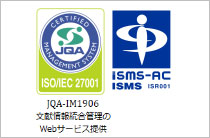ホームIMICライブラリMMWR抄訳2021年(Vol.70)COVID-19パンデミック中における児童への学校・・・
2021/03/19Vol. 70 / No. 11
MMWR70(11):369-376
Association of Children’s Mode of School Instruction with Child and Parent Experiences and Well-Being During the COVID-19 Pandemic — COVID Experiences Survey, United States, October 8–November 13, 2020
COVID-19パンデミック中における児童への学校教育の形態と児童および親の体験および健康との関連性 ―COVID Experiences調査、アメリカ、2020年10月8日~11月13日
2020年3月、COVID-19の原因ウイルスであるSARS-CoV-2の伝播を遅らせる取り組みの結果、大規模な学校閉鎖、バーチャル教育モデルへの移行、学校サービスの修正、学齢期児童の教育体験における混乱をもたらした。2020年10月8日~11月13日、5~12年生の学齢期児童の親または法定後見人(以下、親)を対象にNORC’s AmeriSpeak panelを用いたオンラインまたは電話でのCOVID Experiences全国調査を行った。最終的な回答サンプル数は1,290件であり、公立学校の子供は1,169名、私立学校は121名であった。バーチャル授業のみの学校は530校[45.7%、公立507校(47.6%)、私立23校(20.3%)]、対面式授業のみの学校は434校[30.9%、公立352校(28.3%)、私立82校(65.6%)]、両方を併用している学校は326校[23.4%、公立310校(24.1%)、私立16校(14.2%)]であり、バーチャル授業のみの学校は公立校にて多かった。また、ヒスパニック系(65.9%)、非ヒスパニック系その他人種/多民族(60.4%)、非ヒスパニック系黒人(54.9%)は非ヒスパニック系白人(31.9%)に比べ、バーチャル授業のみが多かった。親の報告によれば、バーチャル授業を受けている子供では、対面式授業を受けている子供に比べ、身体的活動の減少(62.9% vs. 30.3%)、屋外で過ごす時間の減少(58.0% vs. 27.4%)、友人と直に会う時間の減少(86.2% vs. 69.5%)、友人と授業以外でバーチャルに会う時間の減少(24.3% vs. 12.6%)、精神的/感情的健康の悪化(24.9% vs. 15.9%)の割合が高かった。また、対面式とバーチャル併用授業を受けている子供は、対面式授業を受けている子供に比べ、身体的活動の減少(52.1% vs. 30.3%)、屋外で過ごす時間の減少(42.4% vs. 27.4%)、友人と直に会う時間の減少(84.1% vs. 69.5%)、精神的/感情的健康の悪化(24.7% vs. 15.9%)の割合が高く、バーチャル授業を受けている子供では、対面式とバーチャル併用授業を受けている子供に比べ、身体的活動の減少(62.9% vs. 52.1%)、屋外で過ごす時間の減少(58.0% vs. 42.4%)の割合が高かった。バーチャル授業を受けている子供の親は、対面式授業を受けている子供の親に比べ、失業(42.7% vs. 30.6%)、仕事の安定性への不安(26.6% vs. 15.2%)、育児の課題(13.5% vs. 6.8%)、仕事と育児の間の葛藤(14.6% vs. 8.3%)、精神的苦痛(54.0% vs. 38.4%)、睡眠障害(21.6% vs. 12.9%)を報告する割合が高く、対面式とバーチャル併用授業を受けている子供の親は、対面式授業を受けている子供の親に比べ失業(40.1% vs. 30.6%)、仕事と育児の間の葛藤(14.2% vs. 8.3%)を報告する割合が高かった。バーチャル授業を受けている子供の親は、対面式とバーチャル併用授業を受けている子供の親に比べ、精神的苦痛(54.0% vs. 42.9%)を報告する割合が高かった。以上、対面授業を受けていない子供とその親では、精神的、感情的、身体的な健康に負の転帰をもたらすリスクが増加する可脳性があり、パンデミックを緩和する取り組みとして追加の支援の必要があるかもしれない。
References
- Gassman-Pines A, Ananat EO, Fitz-Henley J 2nd. COVID-19 and parent-child psychological well-being. Pediatrics 2020;146:e2020007294. PMID:32764151 <https://doi.org/10.1542/peds.2020-007294>
- Masonbrink AR, Hurley E. Advocating for children during the COVID-19 school closures. Pediatrics 2020;146:e20201440. PMID:32554517 <https://doi.org/10.1542/peds.2020-1440>
- NORC at the University of Chicago. Chicago, IL: Technical overview of the AmeriSpeak panel: NORC’s probability-based household panel. Chicago, IL: NORC at the University of Chicago; 2021. <https://amerispeak.norc.org/Documents/Research/AmeriSpeak%20Technical%20Overview%202019%2002%2018.pdf>
- US Department of Health and Human Services; Physical Activity Guidelines Advisory Committee. 2018 Physical Activity Guidelines Advisory Committee scientific report. Washington, DC: US Department of Health and Human Services; 2018. <https://health.gov/sites/default/files/2019-09/PAG_Advisory_Committee_Report.pdf>
- Ahn S, Fedewa AL. A meta-analysis of the relationship between children’s physical activity and mental health. J Pediatr Psychol 2011;36:385–97. PMID:21227908 <https://doi.org/10.1093/jpepsy/jsq107>
- Tillmann S, Tobin D, Avison W, Gilliland J. Mental health benefits of interactions with nature in children and teenagers: a systematic review. J Epidemiol Community Health 2018;72:958–66. PMID:29950520 <https://doi.org/10.1136/jech-2018-210436>
- Russell BS, Hutchison M, Tambling R, Tomkunas AJ, Horton AL. Initial challenges of caregiving during COVID-19: caregiver burden, mental health, and the parent–child relationship. Child Psychiatry Hum Dev 2020;51:671–82. PMID:32749568 <https://doi.org/10.1007/s10578-020-01037-x>
- McKnight-Eily LR, Okoro CA, Strine TW, et al. Racial and ethnic disparities in the prevalence of stress and worry, mental health conditions, and increased substance use among adults during the COVID-19 pandemic—United States, April and May 2020. MMWR Morb Mortal Wkly Rep 2021;70:162–6. PMID:33539336 <https://doi.org/10.15585/mmwr.mm7005a3>
- Fry-Bowers EK. Children are at risk from COVID-19. J Pediatr Nurs 2020;53:A10–2. PMID:32386796 <https://doi.org/10.1016/j.pedn.2020.04.026>
- Murphy A, Pinkerton LM, Bruckner E, Risser HJ. The impact of the novel coronavirus disease 2019 on therapy service delivery for children with disabilities. J Pediatr 2020. Epub December 25, 2020. <https://www.sciencedirect.com/science/article/pii/S0022347620315705>
Copyright © 2013 International Medical Information Center. All Rights Reserved.












